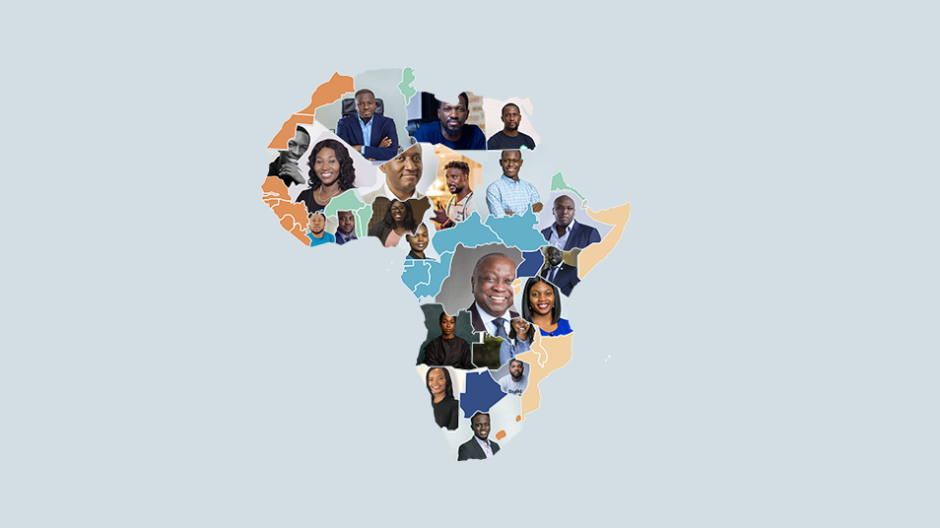The African startup ecosystem has experienced explosive growth in the past few years, attracting record-breaking investments, major acquisitions, and global attention. The rise of fintech, e-commerce, healthtech, and logistics startups has transformed Africa into one of the most promising emerging markets for venture capital and innovation.
But what is driving this growth? What opportunities exist for founders and investors? And what challenges could slow down this momentum?
At Founder Africa, we see the Africa startup ecosystem as a critical factor in the success of the founders we promote and inspire. This article is our first quarterly update, analyzing trends, funding shifts, challenges, and future outlooks for startups and investors in Africa.
How Africa’s Startup Ecosystem Gained Global Attention
Over the last three years, Africa has reached several major startup milestones, signaling global investor confidence in the region’s tech ecosystem.
Record-Breaking Acquisitions & Unicorn Valuations
- Stripe’s acquisition of Paystack – A landmark deal that put African fintech on the global map.
- Flutterwave’s $3 billion valuation – One of Africa’s most valuable tech companies.
- WorldRemit’s acquisition of Sendwave – Highlighting the rising importance of remittance fintechs.
- SweepSouth’s acquisition of Filkhedma – A significant cross-border deal in African tech.
Major Funding Rounds & Global Accelerator Recognition
- Trella raised $42 million to disrupt logistics in Africa.
- 64 African startups were selected for Y Combinator, giving them access to Silicon Valley-level funding and mentorship.
Why These Events Matter:
These milestones show that Africa is no longer seen as a “risky” or “developing” startup market—instead, it is a serious player in global venture capital, with scalable business models and high-growth companies.
With internet penetration growing, more Africans have access to digital products and services, unlocking huge market opportunities in fintech, healthtech, edtech, and commerce.
How the Investor Landscape in Africa is Evolving
1. The Rise of Angel Networks & Smart Capital
The number of Angel Networks in Africa has surged, with the African Business Angel Network (ABAN) reporting over 55 registered networks—some estimates suggest over 100.
Why This Matters:
- African founders struggle to raise their first $50,000, unlike in developed markets where early funding comes from friends and family.
- Angel investors fill this gap, providing smart capital and mentorship to help startups build Minimum Viable Products (MVPs) and get early traction.
2. The Growth of Angel Funds & Syndicates
New Angel Funds are making early-stage investing more structured and reducing risks:
1. Launch Africa
2. Syndicate by CcHub
3. Future Africa
Why This Matters:
- Angel investors now have access to pre-vetted startup deals.
- New investors can co-invest alongside experienced VCs.
- Founders get access to high-quality mentorship and advisory.
3. Early-Stage VC Firms are Scaling Startups Faster
Africa’s venture capital ecosystem has matured, with more VC firms raising multi-million-dollar funds to scale promising startups.
Why This Matters:
- Startups can now raise follow-on funding beyond the angel stage.
- VC-backed startups have a higher chance of becoming unicorns.
- More funding means a stronger pipeline of successful exits.
What’s Next?
As more capital flows into African startups, we are likely to see more unicorns, exits, and increased liquidity in the ecosystem.
Challenges Facing the African Startup Ecosystem
Despite the momentum and optimism, Africa’s startup ecosystem faces significant hurdles that could slow down growth if not addressed.
1. The Talent Crunch & Rising Salaries
The influx of capital has intensified competition for skilled talent, making it harder for startups to recruit top engineers, product managers, and leadership teams.
Why This Matters:
- Salaries are rising fast, making it expensive for startups to build strong teams.
- Remote work is a double-edged sword—while African tech talent can now work globally, many are choosing higher-paying jobs abroad over local startups.
How Founders Can Attract Top Talent:
Offer equity compensation (stock options) to employees.
Build a strong company culture that retains talent.
Provide clear career growth opportunities within the startup.
2. The Rise of “Trend-Driven” Startups
With more capital flowing into Africa, many new startups are emerging—but not all are built for long-term success.
The Problem:
- Some startups are chasing funding trends instead of solving real problems.
- Investors struggle to distinguish high-potential startups from opportunistic ones.
How Investors Can Mitigate This Risk:
Conduct deep due diligence on founder credibility and market opportunity.
Invest in founders with proven execution ability and resilience.
Leverage syndicates and expert-led investment groups.
3. The Danger of Overvaluation
Africa’s startup funding boom has led to inflated valuations, driven by:
- Investor FOMO (Fear of Missing Out).
- The race to fund “the next big thing.”
Why Overvaluation Hurts Founders:
- Increased pressure to deliver unrealistic growth projections.
- More difficult follow-on fundraising rounds.
- Higher expectations from investors leading to premature scaling.
How Founders Can Prevent Overvaluation Issues:
1. Raise funding at realistic valuations based on actual traction.
2. Prioritize sustainable growth over artificial hype.
3. Be transparent with investors about market realities.
The Future of Africa’s Startup Ecosystem
Despite its challenges, Africa’s startup ecosystem is one of the most promising in the world.
More founders are tackling Africa’s biggest challenges with innovative solutions.
More investors are recognizing Africa’s potential for outsized returns.
More successful exits will lead to increased reinvestment and ecosystem growth.
At Founder Africa, we are proud to be part of this transformation—telling the stories of African founders and promoting the next generation of innovators.
Read a report on African startup ecosystem funding trends here: African Startup Funding 2024: Key Stats & Market Trends




